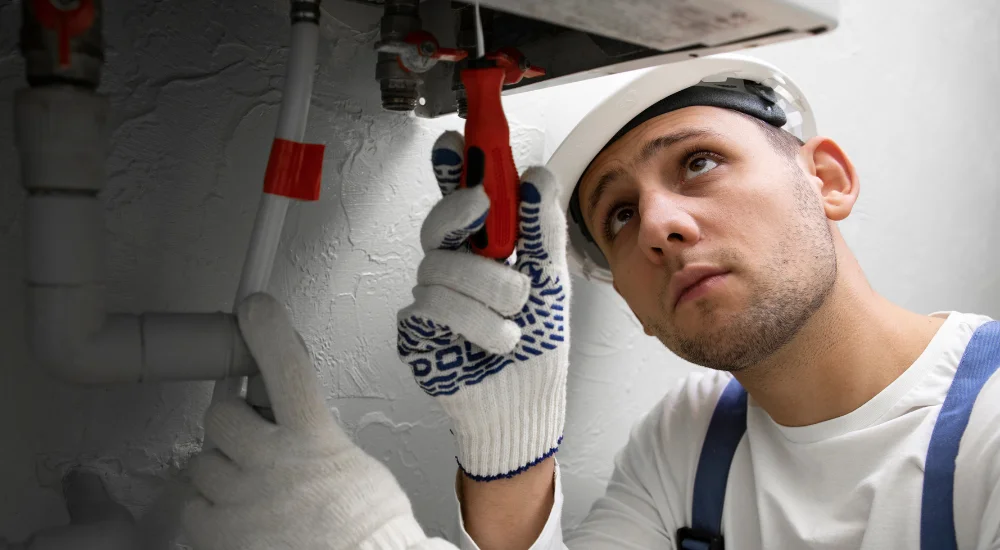
As a UK homeowner, keeping your boiler in top condition is crucial for ensuring your home stays warm and your energy bills stay low. Regular boiler maintenance can prevent breakdowns, improve efficiency, and extend the life of your system.
However, if you are using an old boiler, you most likely are wasting effort in maintaining a machine that is no longer functional. Especially, if your boiler has been working for more than 10 years, it will be foolish to keep its maintenance and repair further.
Non-condensing boilers are old and present outdated technology. Why not change them instead of maintaining them over and over again? What about the cost you say? Such boilers installed before 2005 can be replaced free of cost with free boiler grants.These grants are sponsored by the UK government.
Regardless of how to get the boiler, it is good to understand how to maintain it. Let’s go through the essential annual boiler maintenance checks for you to perform.
DIY Boiler Maintenance Steps
Your boiler is the heart of your home’s heating system. Just like a car, it needs regular maintenance to run smoothly. By performing a few simple checks each year, you can catch potential problems early and keep your boiler running efficiently. Here’s a step-by-step guide to the annual maintenance tasks you should carry out.
1. Visual Inspection
Start by giving your boiler a good once-over. Look for any obvious signs of wear and tear, such as rust, leaks, or corrosion. Check the area around your boiler for water stains, which could indicate a leak. If you spot anything unusual, it might be time to call in a professional.
2. Check the Pressure
Your boiler’s pressure should typically be between 1 and 1.5 bar when the system is cold. You can check this on the pressure gauge, which is usually located on the front of the boiler. If the pressure is too low, you might need to top it up using the filling loop. If it’s too high, you may need to bleed the radiators to release some pressure.
3. Bleed Your Radiators
Over time, air can become trapped in your radiators, causing cold spots and reducing efficiency. To bleed your radiators, you’ll need a radiator key. Turn off your heating, then use the key to open the valve at the top of each radiator. You’ll hear a hissing sound as the air escapes. Once water starts to flow steadily, close the valve. This simple task can make a big difference in your heating efficiency.
4. Test the Thermostat
Make sure your thermostat is working correctly by turning up the heat and seeing if your boiler responds. If it doesn’t, or if the temperature doesn’t feel right, you might need to replace the batteries or even the thermostat itself. A properly functioning thermostat ensures your home stays at a comfortable temperature without wasting energy.
5. Inspect the Flue
The flue is the pipe that carries exhaust gases from your boiler to the outside. Make sure it’s securely attached and free from any obstructions. A blocked or damaged flue can cause dangerous gases to build up inside your home, so it’s important to check this regularly.
6. Clean the Boiler
Dust and debris can accumulate on your boiler over time, reducing its efficiency. Gently clean the exterior with a soft cloth and, if you’re comfortable doing so, carefully remove the boiler cover to clean any visible dust inside. Make sure to follow the manufacturer’s instructions to avoid damaging any components.
7. Listen for Unusual Noises
Boilers can make a variety of sounds, but you should listen for anything unusual, such as banging, whistling, or gurgling. These noises can indicate a range of issues, from air in the system to a faulty pump. If you hear anything out of the ordinary, it’s best to get a professional to take a look.
8. Check for Error Codes
Modern boilers often have a digital display that shows error codes if something goes wrong. Check your boiler’s manual to understand what these codes mean and whether you can fix the issue yourself or need professional help.
9. Service the Boiler Annually
While there are many checks you can do yourself, an annual service by a qualified engineer is essential. They’ll perform a thorough inspection, clean the internal components, and make sure everything is running safely and efficiently. This not only keeps your boiler in good condition but also helps to maintain any warranties.
10. Verify Safety Features
Ensure that all safety features are functioning correctly. This includes the pressure relief valve, carbon monoxide detectors, and any other built-in safety mechanisms. These features are vital for preventing accidents and keeping your home safe.
Conclusion
Performing these annual maintenance checks can help keep your boiler in top condition, ensuring it runs efficiently and reliably throughout the year. By taking the time to look after your boiler, you can prevent costly breakdowns, extend its lifespan, and keep your home warm and comfortable. Remember, while many of these tasks can be done yourself, an annual professional service is essential for comprehensive maintenance and safety.
By following these simple steps, you’ll have peace of mind knowing your boiler is well-maintained and ready to keep your home cosy all year round. Happy checking!